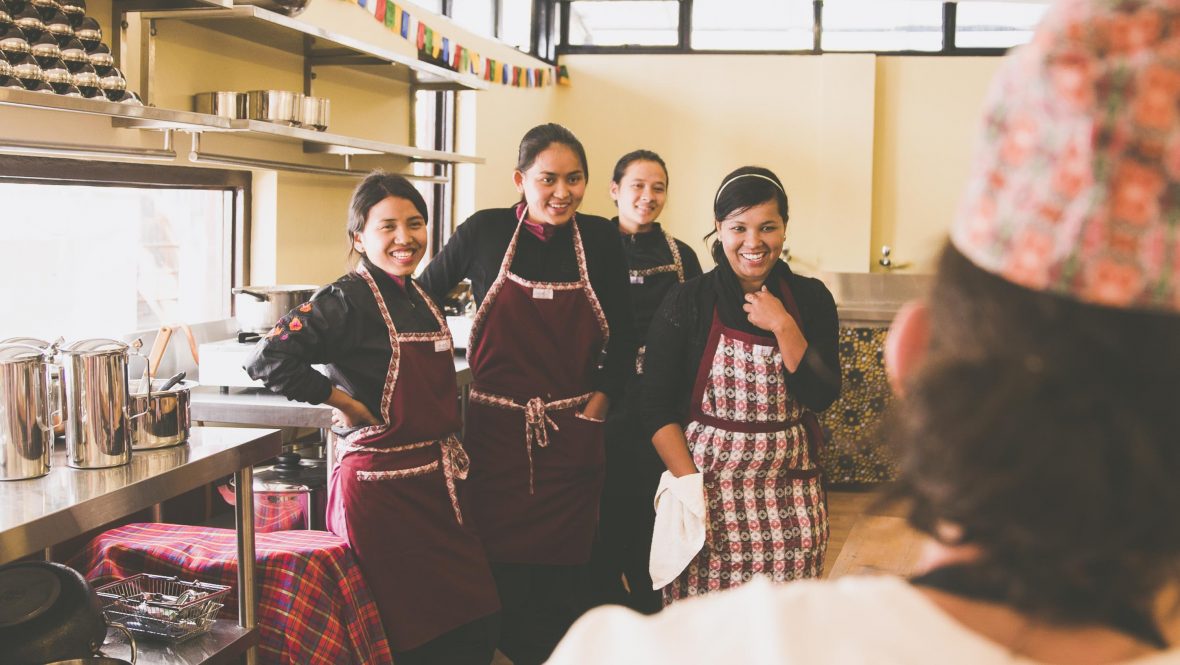The Nepali Women Who Deliver Birth Control By Hiking
India’s Islamophobia Creeps Into Nepal
The association between women’s land rights and empowerment is first explored using simple crosstabulations. As hypothesized, women who own land usually tend to have the final say on household selections, indicating that they are extra empowered (table 1). 70 p.c of girls who own land have the ultimate say on at least one determination alone or jointly in comparison with 48 % of women in landed households and 60 % of girls in landless households.
Nepal Failing To Protect Women From Online Abuse
This measure is used because it is a good basic measure of kid well being (de Onis et al. 1993) that’s logically associated to women’s land rights as mentioned above. It additionally pertains to the time of survey and thus is contemporaneous with the land rights measure. Other potential health measures, including prenatal and delivery care and immunization standing might have occurred so long as five years ago when the mom’s land rights standing might have been different. Further, anthropometric status is available for all kids born in the final 5 years and still alive at the time of survey.
Don’t Let Nepal’s Covid-19 Relief Be Squandered
However, it is important to go additional and likewise contemplate how land rights compare to these other sources of empowerment. Do land rights confer more or less household determination making energy than other sources? In explicit, how do land rights compare to schooling and employment, two commonly mentioned sources of empowerment? On the other hand, the percentages ratios for land ownership are smaller than those for secondary education, suggesting that land ownership is not as efficient a source of empowerment as large quantities of training.
It is this pressure, which women must bear, and which has contributed to over 600,000 circumstances of uterine prolapse in Nepal (additionally known as pelvic organ prolapse or fallen womb). Two hundred thousand women require surgical procedure to cure this affliction that causes ache in addition to a continuing smelly puss that makes them social outcasts or worse, sometimes earns them the label of ‘witches’ and the outright rage of their group. Advocacy has resulted in the establishment of a National Fund to cover expenses for the surgery.

Un Women Nepal
As an adult, this consciousness inspired Rita to start out Tewa (meaning “support” in Nepali). Rita launched Tewa in 1995—the nation’s first, and still only, women’s fund—so as to assist grassroots women’s groups and raise their visibility in Nepal. “There are many challenges in relation to talking about these points in the Nepali context. Sexual harassment is simply not taken critically, which means women don’t have a lot religion within the justice system and are reluctant to open up.
Here you’ll have the chance to study concerning the life of the Tharu women and observe a cookery demonstration of the native delicacies, earlier than sharing dinner collectively. Enjoy a free morning before boarding the 20-minute afternoon flight to Chitwan. Tonight, we’ll be staying at Intrepid’s group based mostly tourism project, the Madi Valley Homestay program. This project supplies sustainable income and encourages the communities residing on the fringes of Chitwan National Park to preserve the wilderness and wildlife round them.
They interact every day with the encircling village to ensure our neighborhood growth works are inline with the goals of the village. The story of Her Farm is my story, but it’s also the story of many Nepali women. End the day with a traditional Nepali dinner on the house of HIO’s Director, sharing your experiences with the Hands in Outreach group. Hands in Outreach (HIO), another grantee of DFW that aims to uplift women and girls residing in poverty through schooling. You could have a singular alternative to visit the women’s schooling program, which is part of the group’s Be Part of her Dream program supported by Dining for Women.
For instance, women had been often not permitted to the touch male members of the family, attend temple, take part with celebrations, prepare dinner, or enter their kitchens when menstruating. These practices had been nepalese women usually enforced by elders within their family and neighborhood, including mothers, grandmothers and other senior women.
This paper makes use of the 2001 Nepal Demographic and Health Survey to discover whether women’s land rights empower women and benefit young kids’s well being in Nepal. Women who personal land are considerably more likely to have the ultimate say in family choices, a measure of empowerment.
The availability of services and understanding of the importance of postnatal care are important to improved uptake of postnatal care . The underutilisation of postnatal care is usually related to unavailability, inaccessibility and the poor quality of health services . Physical accessibility is an important variable for utilisation of postnatal health providers .
While women’s rights activists hailed the law as a step in the proper direction, they have been quick to point out that rather more than a law can be wanted to rid the nation of the deep-rooted practice. It is generally women in yellow onerous hats you see on the 76km stretch of the Mugu-Humla street that is presently beneath development. Humla is the last district in Nepal not yet connected to the country’s road network, and the remote Himalayan district remains economically behind its neighbours.
In the earlier part it was proven that women’s land ownership does have a constructive affiliation with women’s participation in household decision making. It is possible that the positive affiliation between mom’s land possession and youngster diet could come by way of the higher empowerment that mothers who own land have.
After breakfast this morning you’ll visit the Restless Development office in Kathmandu to find out about how this project is attempting to get rid of Chhaupadi pratice in Nepal. Chhaupadi is a convention associated with menstrual taboo within the western part of Nepal, which prohibits Hindu women and ladies from taking part in normal family activities while menstruating, as they’re thought of impure. The women are banned from the home and are required to reside in a cattle shed or menstruation hut during their interval. During this time, women and girls are restricted from collaborating in everyday life events, and from interacting with their communities and likewise danger their lives due to the poor ventilation circumstances within the huts and sheds.
